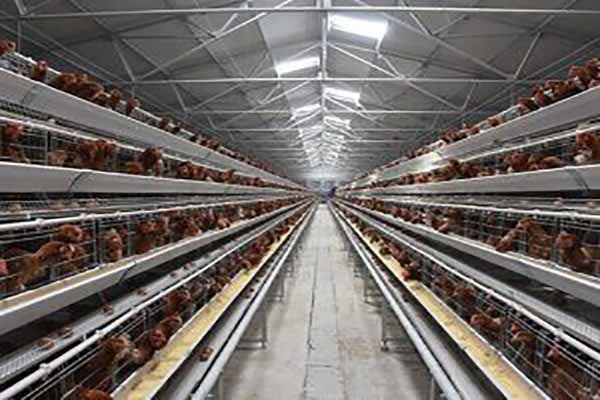How to Start a Chicken Farm in BC: A Comprehensive Guide
Time : 2025-06-26
Starting a chicken farm in BC, Canada, can be a rewarding venture. However, it requires thorough planning, understanding of the industry, and the right equipment. This guide will walk you through the essential steps to kickstart your chicken farming business in BC.
1. Research and Planning
1.1 Understand the Market
Before setting up a chicken farm, it’s crucial to understand the market demand for chicken products in BC. Analyze the demand for different chicken breeds, organic or conventional chicken, and various chicken products such as eggs, broilers, or meat.
1.2 Develop a Business Plan
Create a comprehensive business plan that outlines your goals, market analysis, marketing strategies, financial projections, and operational details. A solid business plan will also help you secure financing if needed.
1.3 Legal and Permits
Research the legal requirements for starting a chicken farm in BC. This includes obtaining a business license, permits for farming activities, and compliance with local health and safety regulations.
2. Selecting a Location
2.1 Consider the Climate
BC has diverse climates, ranging from coastal to interior regions. Choose a location that suits the climate and your chicken breed’s requirements. Coastal regions offer cooler temperatures, while interior regions can be warmer.
2.2 Access to Feed and Markets
Ensure that your farm has easy access to feed suppliers and markets for selling chicken products. Consider transportation costs and availability.
2.3 Zoning and Environmental Regulations
Check the zoning regulations of the area to ensure that your farm is permitted. Also, be aware of environmental regulations regarding waste management and water usage.
3. Chicken Breeds and Housing
3.1 Selecting Chicken Breeds
Choose chicken breeds that are suitable for your climate and farming goals. BC farmers often prefer breeds that are hardy, productive, and well-suited to the local conditions. Some popular breeds include the Ross 308 for broilers and the Black Australorp for egg-laying.
3.2 Designing Chicken Housing
Proper housing is essential for the health and productivity of your chickens. Consider the following when designing chicken housing:
– Adequate space for each bird.
– Proper ventilation and temperature control.
– Access to natural light.
– Easy cleaning and maintenance.
Invest in quality chicken coops and equipment such as nesting boxes, feeders, and waterers.
4. Feeding and Nutrition
4.1 Feed Ingredients
Understand the nutritional requirements of your chosen chicken breed and develop a balanced diet. Consider sourcing high-quality feed ingredients, such as corn, soybean meal, and vitamins and minerals.
4.2 Feeding Practices
Implement proper feeding practices to ensure optimal growth, health, and productivity. This includes regular feeding schedules, avoiding overfeeding, and monitoring feed intake.
5. Health Management
5.1 Biosecurity
Establish strict biosecurity measures to prevent the introduction and spread of diseases on your farm. This includes implementing isolation protocols, regular cleaning and disinfection, and limiting the number of visitors.
5.2 Vaccination and Health Monitoring
Work with a veterinarian to develop a vaccination program tailored to the specific health risks in BC. Regularly monitor the health of your chickens and promptly address any issues.
6. Marketing and Sales
6.1 Establishing Relationships with Buyers
Develop relationships with local grocery stores, restaurants, and farmers’ markets. Offer organic, free-range, or specialized chicken products to target specific market segments.
6.2 Marketing Strategies
Utilize various marketing strategies, such as social media, farm tours, and direct-to-consumer sales, to promote your chicken farm and attract customers.
7. Farm Equipment and Tools
Invest in high-quality chicken farming equipment to improve efficiency and productivity. Some essential equipment includes:
– Chicken coops and housing structures.
– Feeders and waterers.
– Egg collection equipment.
– Manure management systems.
– Farm machinery for feed processing and transportation.
Conclusion
Starting a chicken farm in BC can be a challenging yet fulfilling endeavor. By carefully planning, selecting the right location, breeding, housing, feeding, and managing health, you can build a successful and sustainable chicken farming business. Remember to research, stay informed, and invest in quality equipment to maximize your chances of success.
—












